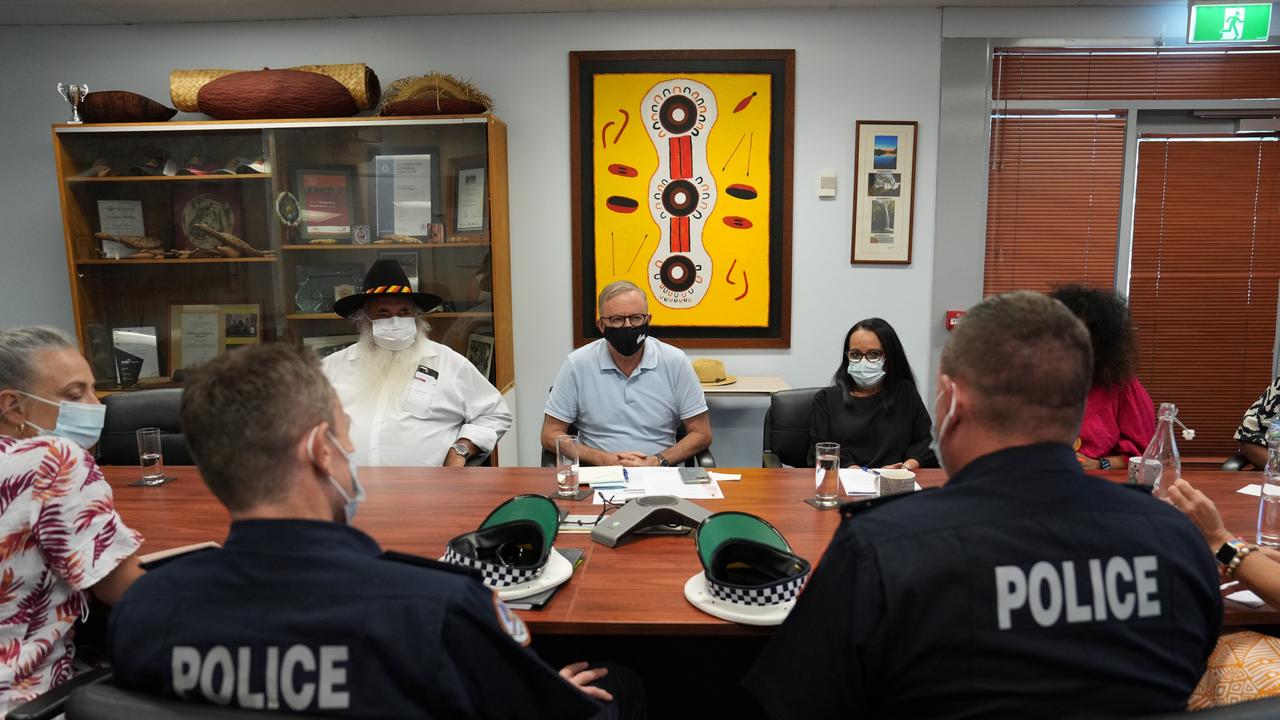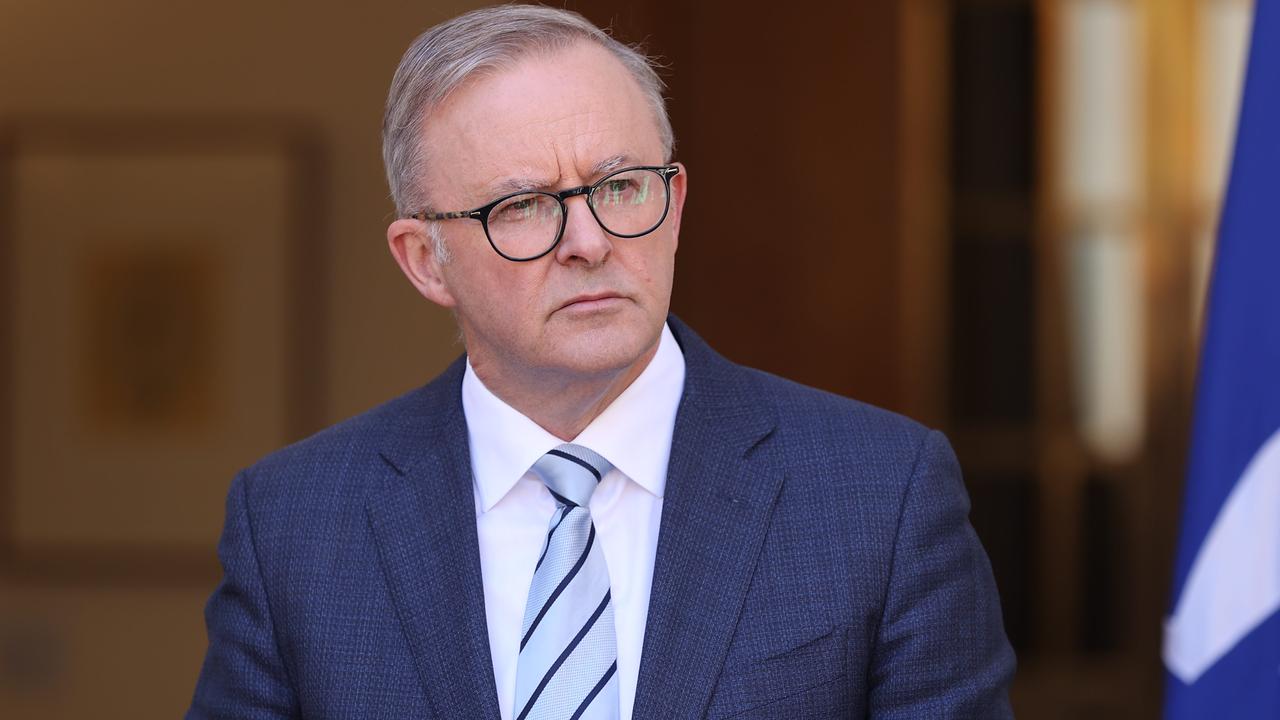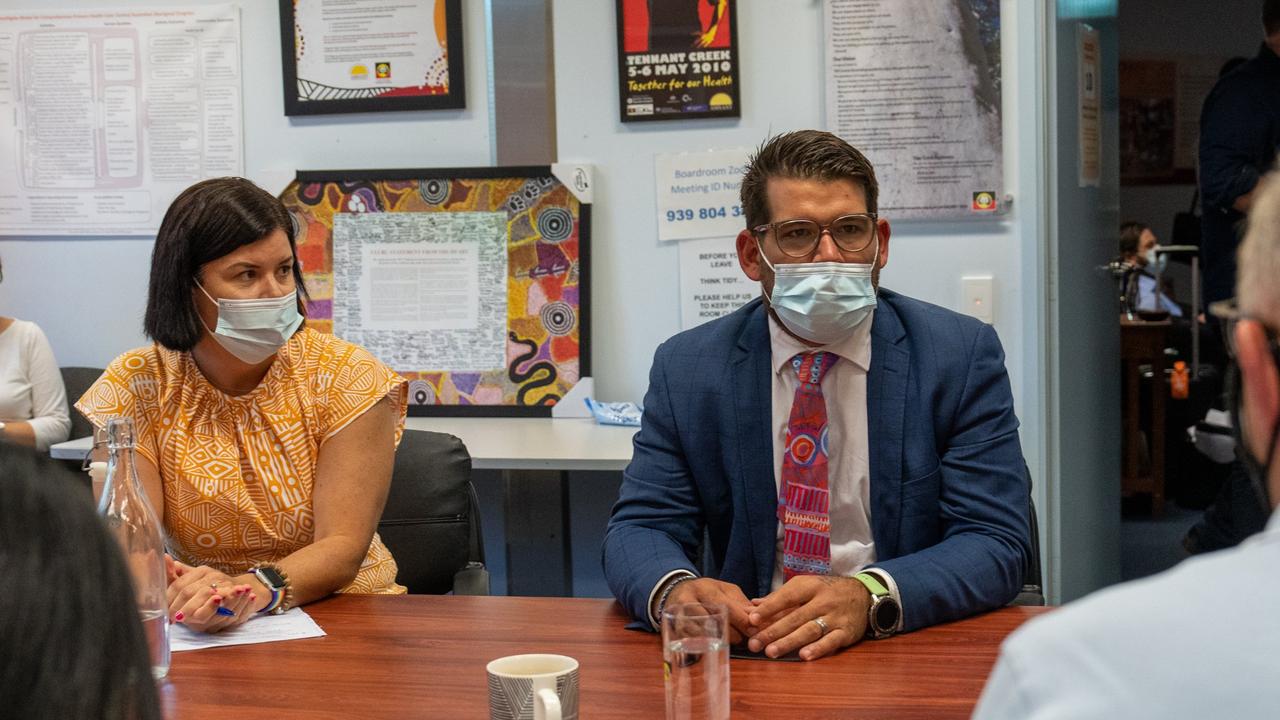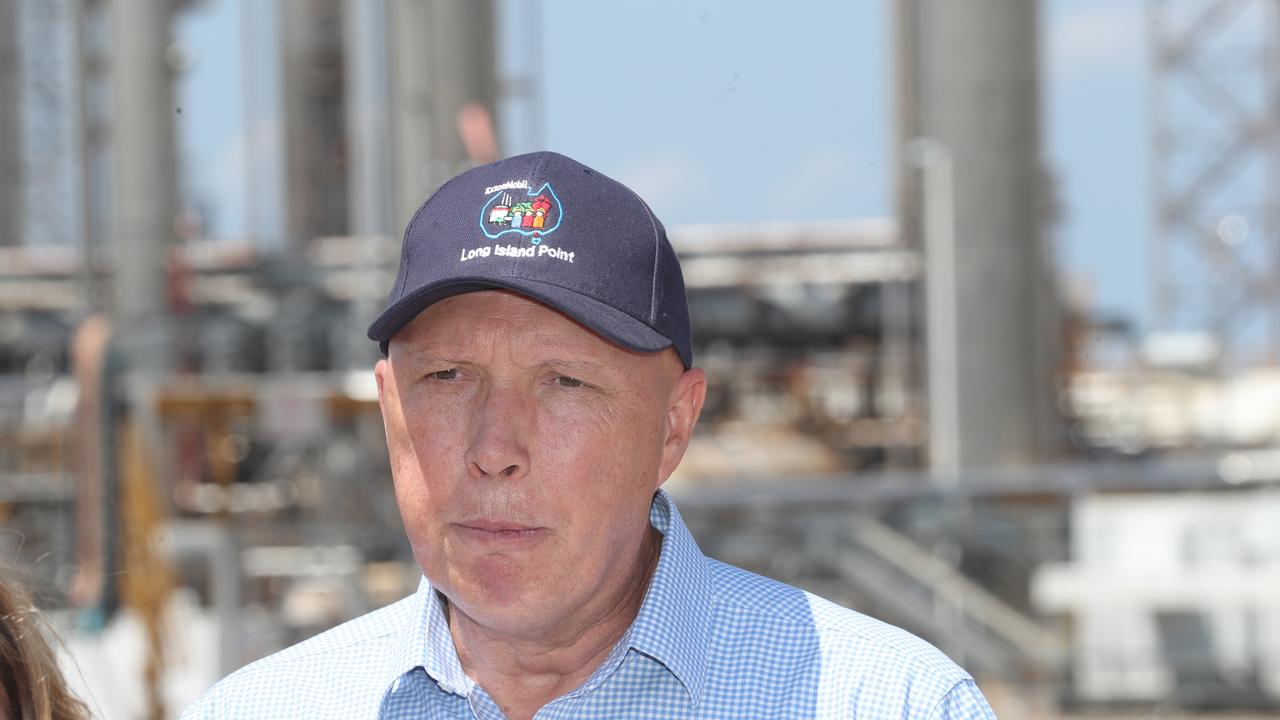Alcohol restrictions among new measures to address violence sweeping Alice Springs
The PM has announced new measures to address youth crime and alcohol-fuelled violence in Alice Springs after an emergency meeting in the outback town.
New alcohol restrictions will be enforced in Alice Springs in an effort to reduce the violence sweeping the outback township.
Speaking to reporters in the Central Australian town, Anthony Albanese and Northern Territory Chief Minister Natasha Fyles announced a range of new measures to address a spike in youth crime, alcohol-fuelled violence and other anti-social behaviours.
Takeaway sales of alcohol will be banned on Monday and Tuesday and further restrictions will apply on the other days between 3pm and 7pm. People will only be allowed one purchase per day.
Ms Fyles said the alcohol restrictions would be reassessed after three months.

“I will say upfront that not everyone will be happy with these announcements,” she said.
“The community has called on the government to step up, to step in and to help with a range of solutions and trials. And that is what we are going to do, but in return I ask the community to work with us.”
Ms Fyles said the NT government would work with the commonwealth on a package to support children and families.
The prime minister also announced funding for high visibility police operations, emergency accommodation and women’s services.
Social worker Dorrelle Anderson has been appointed to the new position of Central Australia regional controller. She will advise the federal and territory governments on possible opt-out alcohol bans across the community by February 1.
Mr Albanese said alcohol wasn’t the only factor driving violence in the community.
But he and Ms Fyles blamed the former Morrison Coalition government for allowing the grog bans under the Stronger Futures policy to expire. The Stronger Futures laws lapsed on July 17 last year, after the election of the Labor government.
Mr Albanese landed in Alice Springs about 1.45pm, where he was joined by Labor senators Malarndirri McCarthy and Pat Dodson, Indigenous Australians Minister Linda Burney and Lingiari MP Marion Scrymgour.

Ms Burney said the government had responded to a “desire from the community for action”.
“That’s what’s significant. The issues of youth on the streets and the issue of alcohol-fuelled violence are real,” she told reporters.
“Let’s not pretend that they aren’t. They are real.”
Mr Albanese is understood to have planned a trip to Alice Springs in December which was delayed after he was diagnosed with Covid-19.
His visit comes after days of headlines about the youth crime and amid debate over amending the constitution to enshrine an Indigenous Voice to parliament.
Mr Albanese said he wanted to “leave the door open as wide as possible, for as broad a support as possible” for the Voice, which would be an advisory body on issues affecting Aboriginal Torres Strait Islander people.
“This should be where people are looking for agreement, not looking for an argument, because this is important for respect for First Nations people, for the way that Australians see ourselves and the way the world sees us,” he said on Tuesday evening.

Chief Minister Fyles said earlier on Tuesday she wouldn’t support another “race-based policy” such as a Howard-era style intervention involving booze bans and welfare controls.
“We need to talk to the Commonwealth about needs-based funding for certain services,” she told Sky News after arriving in Alice Springs.
“I don’t believe we need federal intervention from the police or the military.”
The outback town is in the national spotlight following the release of fresh crime statistics from the NT Police, which show rates of violence have increased since the Howard-era laws enforcing alcohol bans in some areas expired last year.
The new data revealed assaults and property offences skyrocketed in the 12 months to December 2022.
Assaults in the town increased by 43 per cent from December 1, 2021 to November 30 last year.
Domestic violence-related assaults increased by 53 per cent while alcohol-related assaults were up by 54 per cent.
The Howard government implemented a package of laws known as the intervention in 2007 which were directed at addressing disproportionate levels of violence in Indigenous communities in the NT.


The laws paved the way for unprecedented government control over certain communities and were viewed by critics as interfering in Indigenous people’s self-determination without prior consultation with Aboriginal leaders.
Peter Dutton has said the Albanese government should urgently reintroduce bans on the sale of alcohol in some parts of the NT.
The Opposition Leader – who has been accused of playing politics with the issue – has also called for the government to send in Australian Federal Police and other emergency services to restore law and order.
“It’s not a race thing. It’s a law and order and crime problem,” Mr Dutton told Nine on Tuesday.
“The prime minister has the resources, the ability, and should show the leadership to deal with this issue.”
NT Police Commissioner Jamie Chalker said the federal government had to be at the table.
“I think it’s positive that both are going down there to see what is occurring on the ground, and doing a lot of listening,” he told ABC Radio on Tuesday morning.
“(Police) are out there front and centre, everybody can see the presence of police out there … and yet we still have these social issues. I think we need a broader conversation.”
Mr Chalker said each night, hundreds of children who can’t return to their homes are roaming the streets, drinking alcohol and committing crimes.



